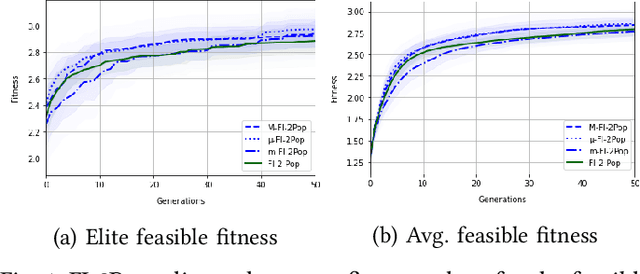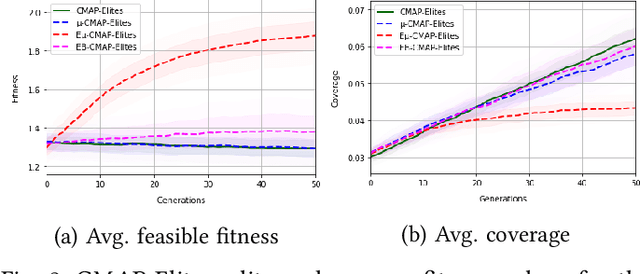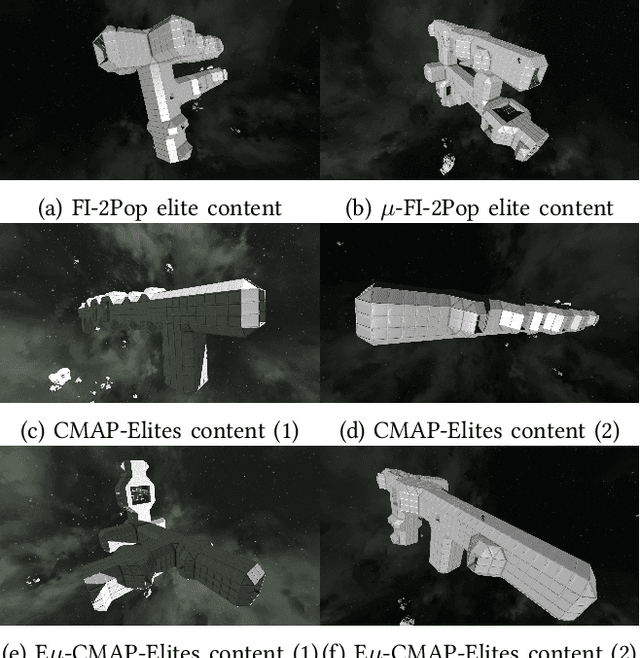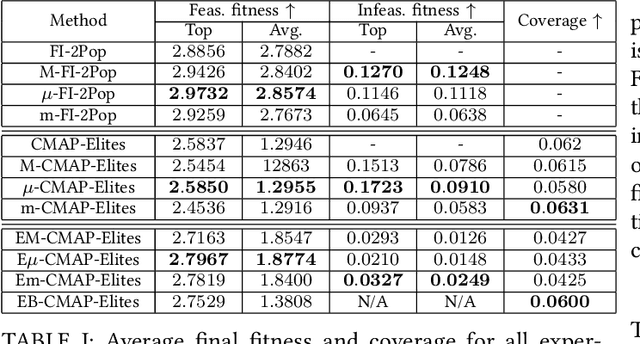Surrogate Infeasible Fitness Acquirement FI-2Pop for Procedural Content Generation
Paper and Code
May 12, 2022



When generating content for video games using procedural content generation (PCG), the goal is to create functional assets of high quality. Prior work has commonly leveraged the feasible-infeasible two-population (FI-2Pop) constrained optimisation algorithm for PCG, sometimes in combination with the multi-dimensional archive of phenotypic-elites (MAP-Elites) algorithm for finding a set of diverse solutions. However, the fitness function for the infeasible population only takes into account the number of constraints violated. In this paper we present a variant of FI-2Pop in which a surrogate model is trained to predict the fitness of feasible children from infeasible parents, weighted by the probability of producing feasible children. This drives selection towards higher-fitness, feasible solutions. We demonstrate our method on the task of generating spaceships for Space Engineers, showing improvements over both standard FI-2Pop, and the more recent multi-emitter constrained MAP-Elites algorithm.
 Add to Chrome
Add to Chrome Add to Firefox
Add to Firefox Add to Edge
Add to Edge